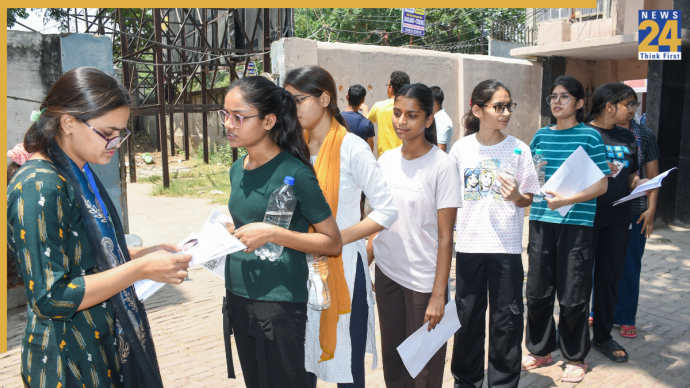The Union Public Service Commission (UPSC) is set to enhance its examination security with the adoption of advanced digital biometric technologies. This move follows the controversy surrounding trainee IAS officer Puja Khedkar, who allegedly impersonated herself to participate in the civil services exam.
In response to this incident and to bolster the integrity of its examinations, the UPSC has invited tenders for cutting-edge digital technologies to prevent cheating, impersonation, and fraud. The commission is focusing on several key innovations to upgrade its examination processes.
Also Read:Madhya Pradesh Woman Delivers Twins With Doctor’s Help On Video Call Amid Rain: 3 Idiots In Real
Key changes coming to UPSC Exam
- Aadhaar-based Fingerprint Authentication: This technology verifies candidates’ identities by matching fingerprints with Aadhaar data, significantly reducing impersonation risks and ensuring only registered individuals take the test.
- Facial Recognition Technology: Facial recognition accurately identifies candidates, preventing impersonation and maintaining examination integrity through real-time facial matching.
- QR Code Scanning: QR codes on e-Admit Cards uniquely identify each candidate, preventing duplication or tampering.
- AI-based CCTV Surveillance: AI-driven CCTV systems will monitor exam conditions in real-time, detect suspicious behavior, and flag irregularities, thereby enhancing exam security and authenticity.
Also Read:Three Die In Pune Electrocution Amidst Severe Rain; CM Shinde Mobilizes Armed Forces
The tender, issued on July 18, does not specify whether these technologies will be used in upcoming exams. The UPSC will decide on their implementation, potentially employing them partially or fully based on its needs.
By integrating these advanced security measures, the UPSC aims to ensure a fair and transparent examination process, reinforcing the credibility and integrity of its exams.













